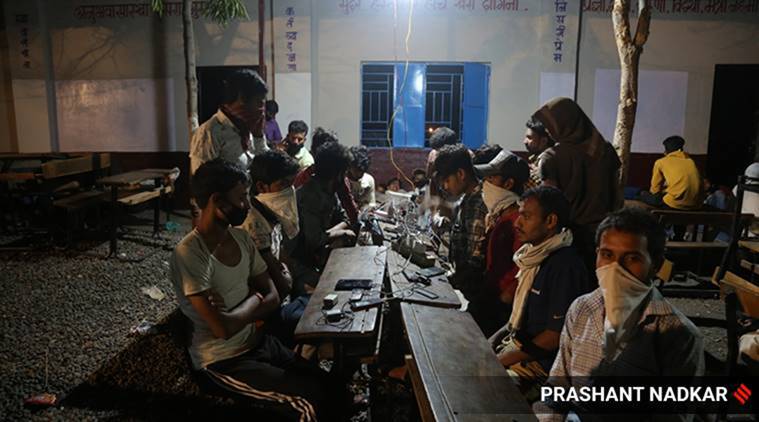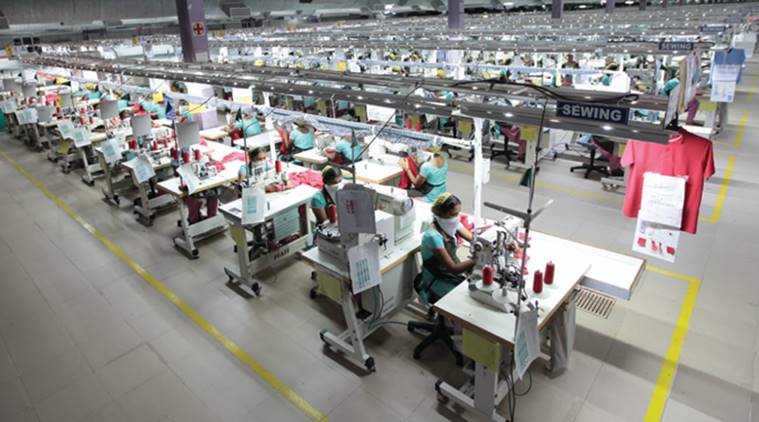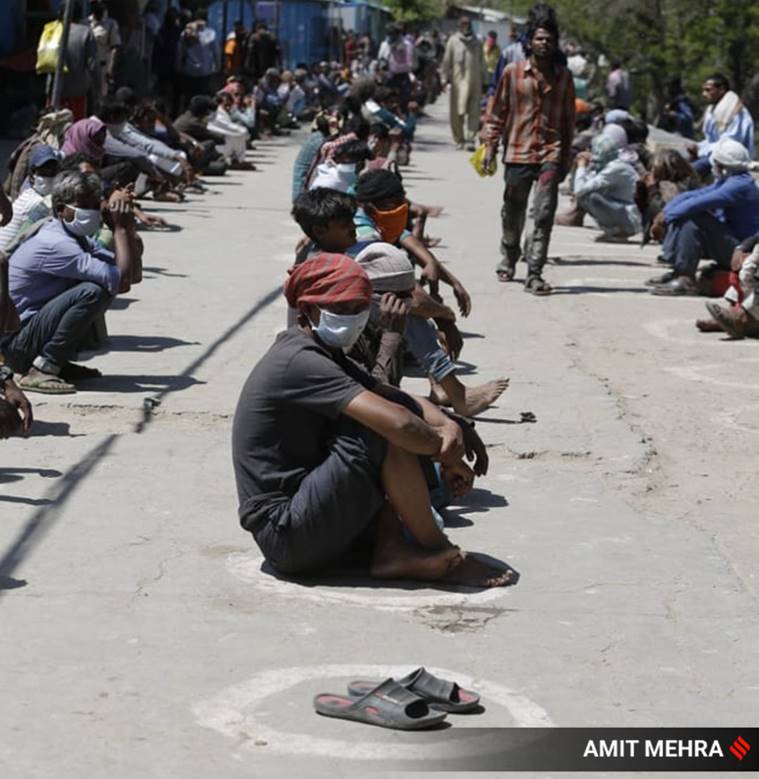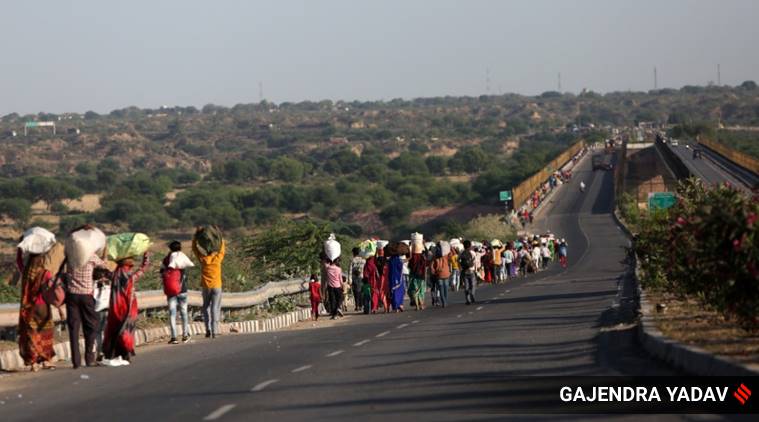In most industrial centres across India, factories were compelled to let go their workers, mostly migrants, when the government imposed a 21-day nationwide lockdown from March 25 to combat the novel coronavirus. For most factory owners, it was a knee-jerk reaction, prompted both by the suddenness of the announcement and the uncertain road ahead.
But there are some stories of manufacturing companies choosing not to leave their workers in the lurch — a decision having elements of large-heartedness as well as taking a more long-term business view.

One illustrative example is the Coimbatore-based KPR Mill Ltd, which employs around 22,000 workers, 90 per cent of them women, at four spinning mills and three garmenting factories in Coimbatore, Tiruppur and Erode districts of western Tamil Nadu.
Since March 25, the company’s mills, with a combined 3.54 lakh spindles capacity, haven’t produced a single kilo of yarn. The same goes for its garmenting units, which can manufacture up to 9.5 crore of knitted inner and outerwear annually for supplying to the likes of H&M, Primark, Kmart and Marks & Spencer.
 Worker’s working in the Coimbatore-based KPR Mill Ltd before the lockdown. (Express photo)
Worker’s working in the Coimbatore-based KPR Mill Ltd before the lockdown. (Express photo)
Yet, the company, which recorded sales of Rs 3,264.22 crore in 2019-20, hasn’t shed any of its 22,000 workers. That includes 17,500 migrant labourers who are all being housed in hostels within the premises of its factories.
“About 5,000 of them are from Odisha, while 2,500 belong to Bihar, Assam and Himachal Pradesh, 2,000 to Kerala, Karnataka and Andhra Pradesh, and 8,000 to other districts of TN. We are continuing to give food and accommodation to all the 17,500. The remaining 4,500 are locals coming from within 1-2 hours of travelling distance and who preferred to be with their families,” said K P Ramasamy, chairman of KPR Mill.
Also Read | Option gaining ground: After 21 days, easing of curbs, in select areas
Story continues below this ad
For KPR, the average monthly cost-to-company per worker is roughly Rs 13,500. That works out to a wage bill of nearly Rs 30 crore, “which we paid to all the 22,000 workers on April 1”. The free food and accommodation is over and above this. Are these costs worth incurring in the present scenario? “The lockdown cannot continue forever and my units will have to re-start at some point. Besides, they are all skilled and trained workers. I have to obviously take care of them,” says Ramasamy.
 For KPR, the average monthly cost-to-company per worker is roughly Rs 13,500. (Express photo)
For KPR, the average monthly cost-to-company per worker is roughly Rs 13,500. (Express photo)
He has sought permission from district authorities concerned to resume work at his facilities. “I will engage only the 17,500 workers being put up in our spacious hostel rooms, each accommodating 7-8 persons. There should be no issues of social distancing even in the manufacturing units, more so when I don’t intend calling any outsiders, including locals who have left,” he adds.
Hatsun Agro Product Ltd, India’s largest private sector dairy company, engages a total of 8,000 workers at its 18 plants across TN, Karnataka, AP and Telangana. The number includes 1,500 migrant labourers from Bihar and other eastern states. All of them are being provided food and housing.
 At a shelter home near Nigambodh Ghat, Thursday. Several migrants who tried to leave the city over the last week and were stopped at the border have been directed to government shelters.
At a shelter home near Nigambodh Ghat, Thursday. Several migrants who tried to leave the city over the last week and were stopped at the border have been directed to government shelters.
“There’s little work right now, but throwing them out to save one month’s cost isn’t worth it. When the lockdown is lifted, getting back labour won’t be easy. Even if you get, it will be new labour that has to be trained all over again. Recruitment and training involve both additional cost and time, which would make it difficult to boost production when demand returns,” says RG Chandramogan, managing director of the Rs 4,760.30-crore sales company.
Story continues below this ad
Also Read | Rapid antibody tests in hotspots advised, decision left to states
Making the same point is the director of a large FMCG multinational. “Distribution problems are being gradually sorted out. The kirana stores and retail outlets are beginning to get fresh stocks from distributors, who are delivering through Tata 407 and other light commercial vehicles. But movement from the company’s C&F (carrying and forwarding) depots to distributors, which is inter-city and takes place in larger trucks, remains choked for want of drivers. My bigger worry, however, is factories. If they don’t start producing now, we are going to have major problems post lockdown,” he warns.
 On Tuesday, the flow had almost ceased at the Gujarat-MP border that had seen a sea of migrant labourers for almost a week. (Express Photo by Gajendra Yadav)
On Tuesday, the flow had almost ceased at the Gujarat-MP border that had seen a sea of migrant labourers for almost a week. (Express Photo by Gajendra Yadav)
India, according to the last Annual Survey of Industries for 2017-18, had 195,584 registered operating factories that engaged 1.56 crore people and distributed Rs 418,357.16 crore of emoluments. These factories are the ones using power and employing 10 or more workers or those without power and engaging a minimum of 20 people.
Being registered and organised, they are amenable to monitoring, which can also extend to their observing social distancing rules. As of now, though, practically all of them are shut or operating at very low capacity.
Story continues below this ad
“Getting factory approvals to re-open may not be difficult. But even if the government allows (that), mobilising labourers, including arranging for their transport from home to plant and back, will be a challenge. At some stage, even invoking the Essential Services Maintenance Act for trucks might be required,” points out the FMCG company official.

 Migrant workers who were either walking or heading to their natives in truck or walking were stopped and lodged at two ashrams in Nashik. (Express photo by Prashant Nadkar)
Migrant workers who were either walking or heading to their natives in truck or walking were stopped and lodged at two ashrams in Nashik. (Express photo by Prashant Nadkar)
 Worker’s working in the Coimbatore-based KPR Mill Ltd before the lockdown. (Express photo)
Worker’s working in the Coimbatore-based KPR Mill Ltd before the lockdown. (Express photo) For KPR, the average monthly cost-to-company per worker is roughly Rs 13,500. (Express photo)
For KPR, the average monthly cost-to-company per worker is roughly Rs 13,500. (Express photo) At a shelter home near Nigambodh Ghat, Thursday. Several migrants who tried to leave the city over the last week and were stopped at the border have been directed to government shelters.
At a shelter home near Nigambodh Ghat, Thursday. Several migrants who tried to leave the city over the last week and were stopped at the border have been directed to government shelters. On Tuesday, the flow had almost ceased at the Gujarat-MP border that had seen a sea of migrant labourers for almost a week. (Express Photo by Gajendra Yadav)
On Tuesday, the flow had almost ceased at the Gujarat-MP border that had seen a sea of migrant labourers for almost a week. (Express Photo by Gajendra Yadav)





